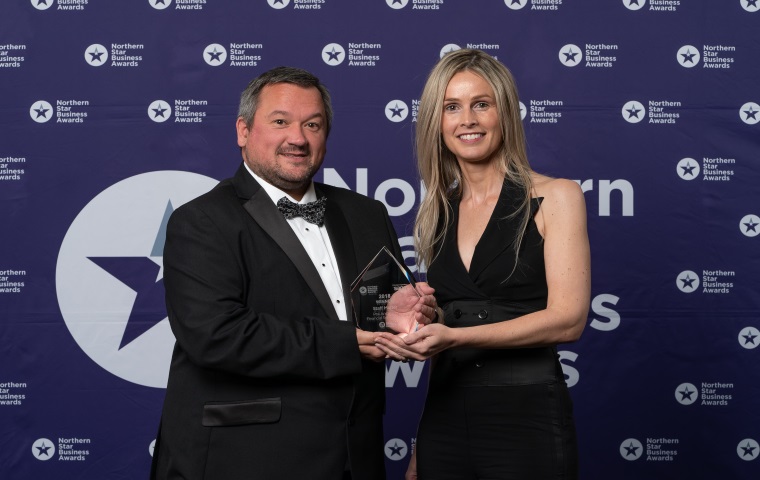Your Managers Aren't The Role Models Your Business Needs
8th October 2018
Only 55% of people agree that their boss is successful in getting people to work together. And only 56% agree that their boss can be relied on to keep their promise.*
These numbers are grim, but perhaps you're not too surprised? Maybe they represent the way you feel?
Many managers have confided in me that they find supervising tricky. Sometimes they even say that they lack supervisory skills and/or training. I've also heard it from their bosses or the people who work for them: they too are worried and often frustrated.
Almost always the manager was an excellent specialist in their field – engineer, accountant, whatever – and they've been moved on and up without support to help them succeed.
Whatever the background, ineffective people management is often a problem holding business back.
There is a solution. It requires a deeper look at the organisation, time and commitment from managers and, most important of all, the leader at the top of the organisation has to champion the change. (Anyone looking for a quick fix won't find it in this blog or anywhere else, because there isn't one.)
Taking Responsibility For Leadership Development
One of the first things I ask leaders who complain about this problem is:
"What actions have you personally taken to improve your managers' skills?"
It can be uncomfortable, but it is always revealing. Often they haven't realised that the responsibility is theirs. Why would they? They've seldom been asked to be good at managing people themselves.
To be fair, even leaders who do recognise their role can be uncertain about coaching managers to manage ... so they don't ... and the problem continues.
I use a two-pronged approach.
The first is for the people leading the managers – that's the focus of the rest of this blog. The second is for developing the managers themselves, which I'll cover in my next blog.
Tackling The Problem
The leadership team must decide what good leadership in their business should look like. Then they need to ACT on it. Important steps include:
- Recognise that leading others requires distinct skills; and commit to developing them.
- Treat all line managers as the key leadership trainers. They make the greatest impact on the people who report to them, so it is critical that they know how to be great leadership role models, enabling their line reports to learn from their actions and behaviours.
- Reward and recognise line managers for leading well. That's reward for doing it really well, not just for leading to the required standard, for 'just doing their job'; and for those who aren't leading well there should be feedback, development and, most likely, lower reward to reflect their lower performance. (Think about this for a moment – is there an element of how you reward managers that reflects how well they lead? I'm guessing not and that this perpetuates subconscious thinking like "I'm not rewarded for being a good manager, so why should I think it's important?")
- Include leadership criteria when selecting for management jobs. That means assessing a candidate's leadership track record and/or leadership potential and not appointing people who do not meet the required standard. (When was the last time you heard that someone technically excellent was turned down for promotion because she or he didn't have a strong enough leadership record or potential? If we did hear this, we'd know leadership criteria were being used in selecting people to be supervisors.)
- Provide leadership development for all leaders in the organisation. This should be a combination of
- in-role practice (70% of learning comes from real-life work)
- coaching and sharing with others (20% from social learning) and
- formal training (no more than 10% of the development activities).
Note that 90% of this can be done for free, without course fees.
Three Powerful Actions
When one leaderhip team asked for my help, we first identified what success would look like and then how they could be recognised for doing leadership development really well. In discussion I facilitated, the team realised that they didn't treat line managers as the key leadership trainers.
They decided to lead from the front by adopting the goal to be recognised as good role-models for developing leaders. It worked! Within just a couple of months we saw real improvements. Here are three powerful actions from the programme that helped them achieve their goal.
"I want to do this so well that people want to copy me."
1. "I want to do this so well that people want to copy me". The leadership team members aimed to be leading so well that their managers would aspire to lead like them. This was really effective. Even though it's hard to succeed, when the leaders had this in their minds it led to marked improvements in how they performed, particularly in how they recognised and rewarded their people for supervising. And so the cascade effect began.
2. Seek feedback and act on it. All the leadership team asked their line reports for feedback. Some of the team worried about opening themselves up to criticism, about making themselves vulnerable. However, they also realised that to be worth their senior job meant being big enough to take feedback which might include some uncomfortable home truths!
What we did was simple. We just asked what they should:
- Start doing 2. Stop doing and 3. Keep doing
…in order to be a good role-model of developing leaders.
I facilitated the feedback to ensure anonymity and help people feel free to speak their minds and made it an activity people trusted. The leadership team took the simple and effective step of acknowledging and thanking people for their feedback. Further building their credibility, they then shared the things they would work personally to improve, asking for support from direct reports to help them do so.
3. Regularly review development plans. The leadership team reviewed the development plans of 2 different line reports each time they met. This was very powerful because each leader wanted to demonstrate that they had invested in their people by producing a thorough, considered development plan (there's nothing like the thought of feeling embarrassed by your peer group to prod you to improve!). There were three key benefits:
- the leadership team became more familiar with the high-potential employees in the organisation.
- every leadership team member benefited from constructive comments about the development plans of their staff.
- the individuals who'd been discussed received feedback after the meeting, as well as improved development plans. This feedback had a cascade effect. As well as knowing what the company thought about them, people liked that the top-team were actively interested in their development: a great example of leadership in action.
Your Turn To Make A Difference
The next time you feel frustrated by a manager's lack of supervisory skills, take a moment to ask yourself: Who appointed the manager? Using what criteria? What am I doing to encourage managers to supervise well?
Maybe this blog will come to mind too and you can wonder "If Jonathan asked my people if I'm a good role model, what would they say?"
To find out how you could use these approaches, please contact me at jonathan.smith@colthill.co.uk. I'd be happy to have an exploratory chat. I think you'll be pleasantly surprised how much helpful stuff can be discovered in a 1-hour conversation.
It was our pleasure to work with Jonathan on this blog post which is also published on Linkedin - it is worth taking a look for the accompanying cartoons, maybe you can connect with Jonathan while you are there.











